|
|
|

|
| .
|
|
LOCAL AREA
KIBOSWA MARKET
Kisumu, Kenya
Kiboswa is a market about 16 kilometers north of Kisumu on the A1 road. Situated
in a rural district, it serves a wide area of population. There are a few
traders here daily, but the main market takes place on Wednesday and Saturday. |
|
|
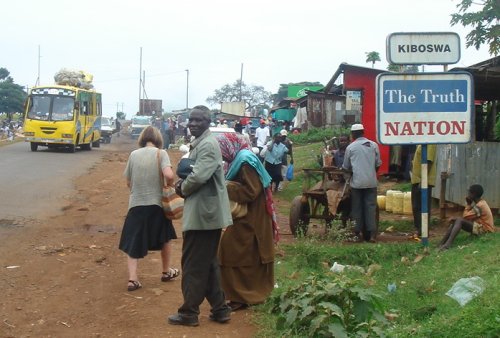
Above, a loaded long distance bus from Kisumu leaves for Eldoret |
| Gay Neep buys some avocados.
A basket full of these excellent large avocados costs just Ksh 40/-
(£0.20p) |
|
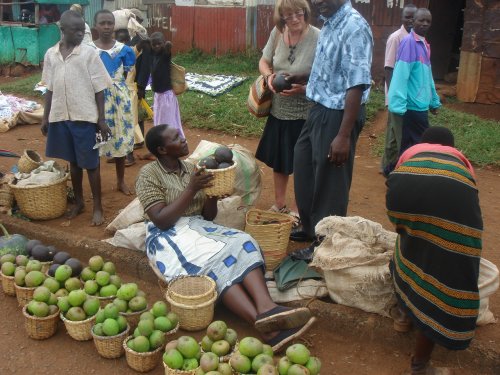 |
| More avocados, and a lady selling small fig trees. |
|
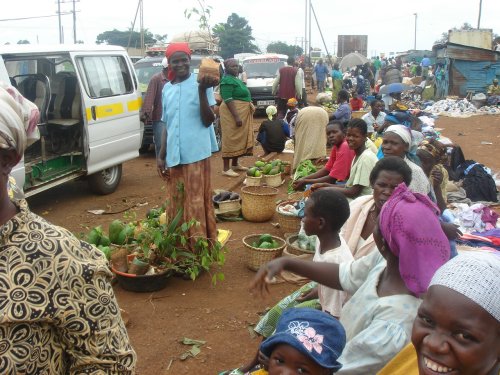
|
| Old second hand clothing from Europe.
There were no new clothes to be bought. |
|
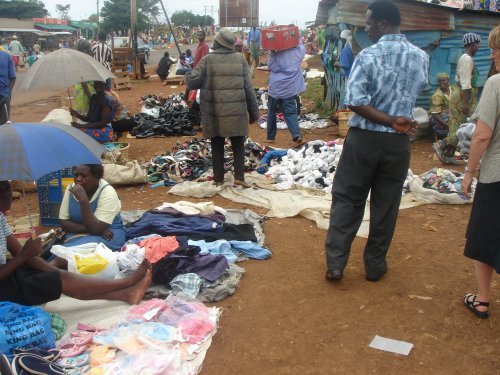 |
| More second hand clothes and shoes |
|
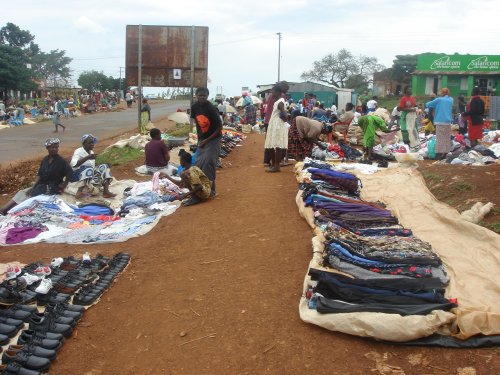 |
| Safaricom store (Vodafone). Cell phones are very expensive, but sim cards
(pay cards) are relatively inexpensive. A great gift for a Kenyan when you
visit would be your old mobile phone.
The land lines in Kenya are defunct. But cell phone coverage is superb
everywhere. |
|
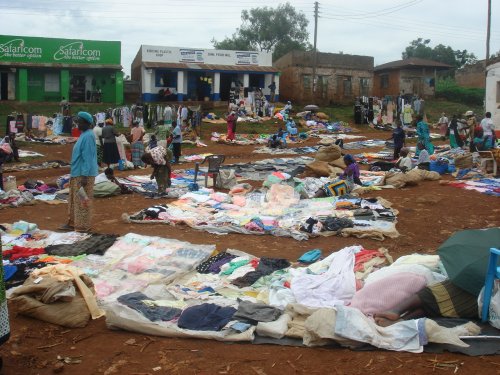 |
| A huge amount of second hand clothes from Europe are sold here. |
|
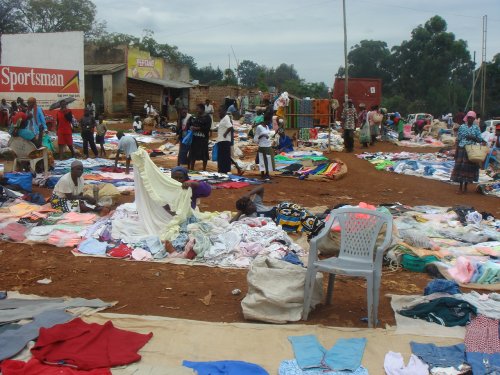 |
| The main street through the village of Kiboswa. On non market days we
drive through here on the way to Dago Kokore school, which is just a couple
of hundred yards away. (Alara Primary School is about 2 kilometres away).
Note that ladies will cary loads on their heads. A man uses a wheelbarrow
to transport a heavy sack (possibly maize). |
|
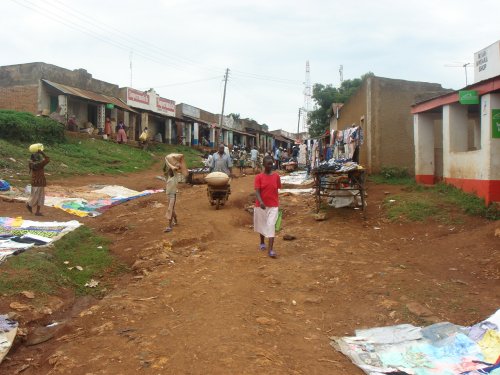 |
| More old clothes, and an old lady walks slowly along the road on her
way to market carrying a small bag and a plastic container so that she can
buy maize. |
|
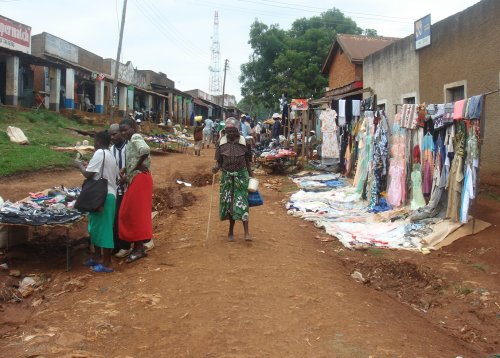 |
| Note the plastic sandals at the lower left. These are the only new shoes
that we saw in the market. |
|
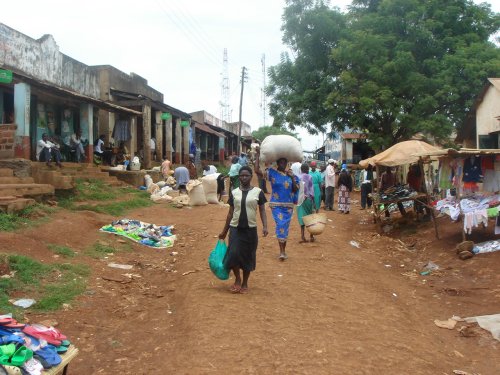 |
| A butcher's shop. This is one of the permanent shops on the main street.
Cows and goats are slaughtered on the ground behind the shop. |
|
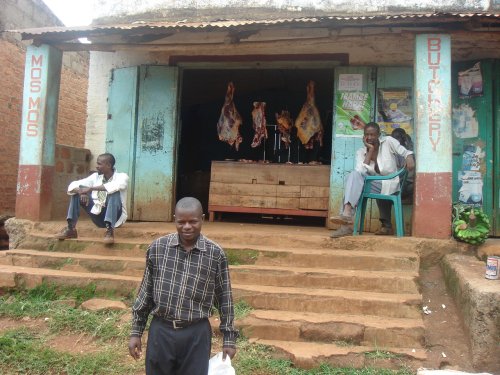 |
| Another butcher's shop over the road. |
|
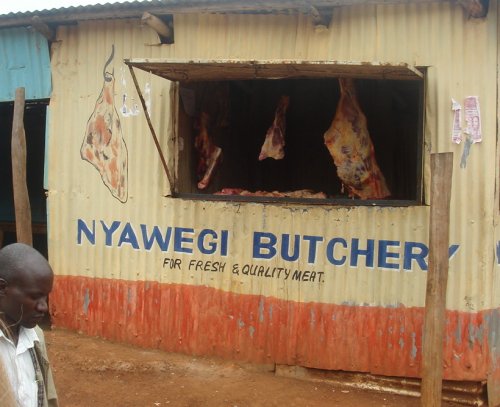 |
| Plastic sandals and aluminium cooking pots in various sizes. |
|
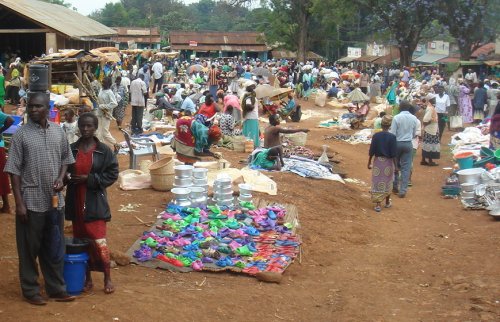 |
|
|
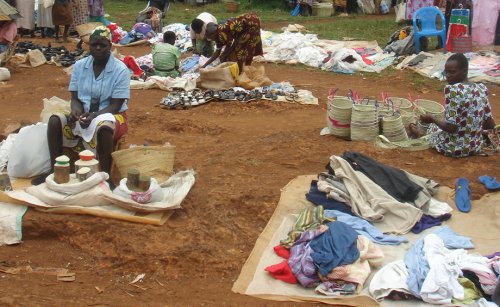 |
| A section of the market where fish are sold. |
|
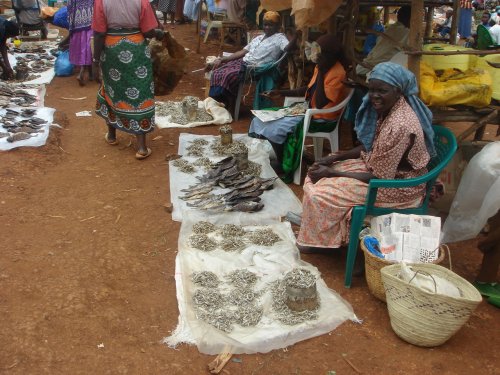 |
| On the left, "small fish", which is a common food. These minnows are
from Lake Victoria, and are salted and dried. They are cooked by boiling
in a pot. We tried them, but found them to be horribly salty.
Tilapia, the larger fish, come in various sizes. They are usually baked,
or baked and then boiled in a sauce with tomatoes and served with sukumawiki
(a cabbage like vegetable, boiled), and rice or ugali. They are delicious.
Be African and eat them with your fingers, breaking off pieces of flesh.
The third fish shown here (lower right) is Nile Perch, again from Lake Victoria. |
|
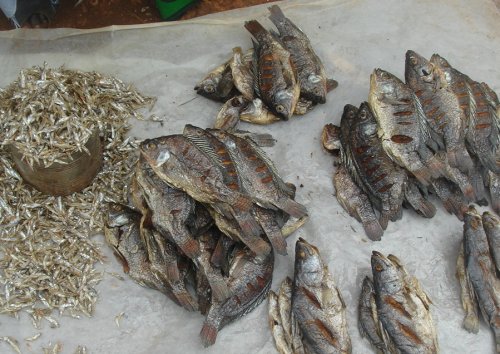 |
| Gay Neep meets an old friend, who is selling "small fish". |
|
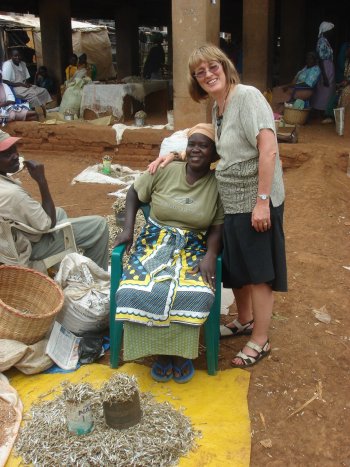 |
| You buy a "pile" of potatoes. |
|
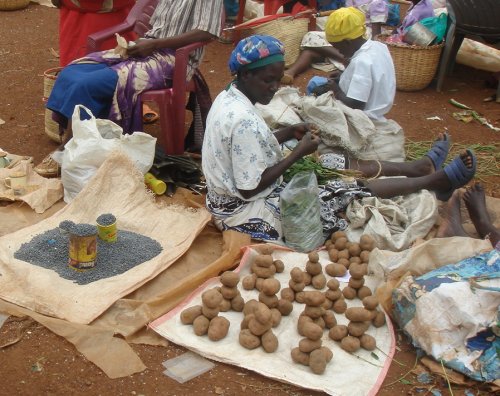 |
| Gay Neep with Tom Sabwa, and Tom's mother. |
|
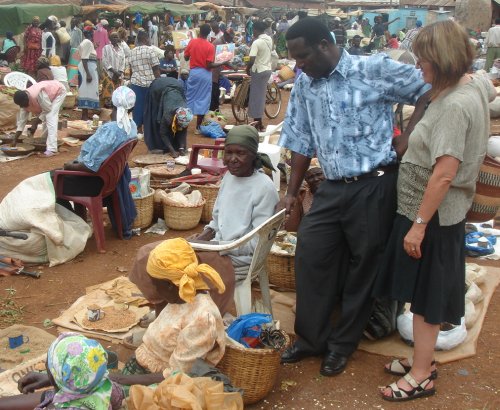 |
| Chickens. These ones are being sold for food. Typical cost is Ksh 100/-
(£0.74p). That's about a day's wages for a labourer. A laying hen will
cost about Ksh 200/-
The chicken are scrawny, and have very little meat, which is very stringy
and chewy. Not at all like the chicken we buy from a supermarket. If you
visit someone's home and they offer you chicken, then it is a special treat
and has cost them quite a lot of money. |
|
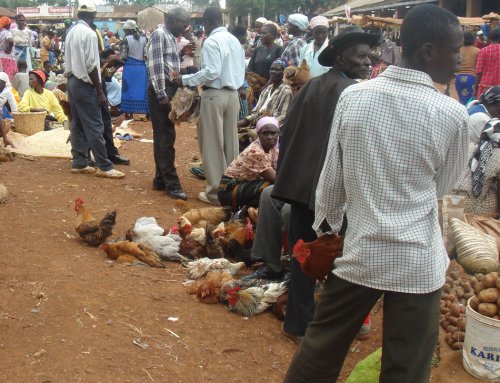 |
| Millicent Anyango, who is a seamstress, repairing and making clothes.
She is aunt to Rosebell , who is one of the orphan children we are sponsoring
to go to secondary school.
We have also bought a Singer sewing machine for Alara School, which will
be loaned free of charge to Millicent Anyango (at present she hires one at
Ksh 800/= per month). In return she has agreed to train two or three teenage
orphan girls who have left primary school, so that they can learn tailoring
and dressmaking, and earn their own incomes.
|
|
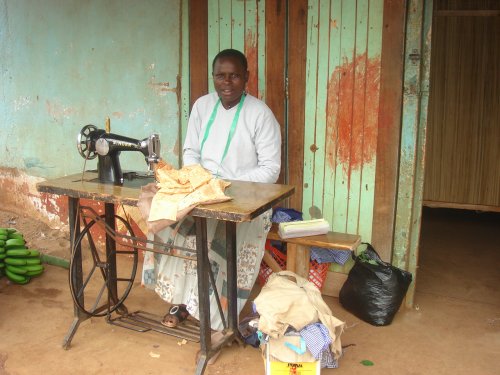 |
| Another street at Kiboswa. On the right is a bookshop and stationers.
|
|
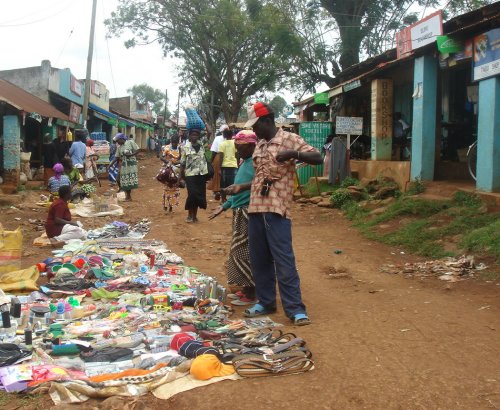 |
|
|
|
|
|
|
|
|
|
|
|
|
|
|
|
 |
 |
. |























